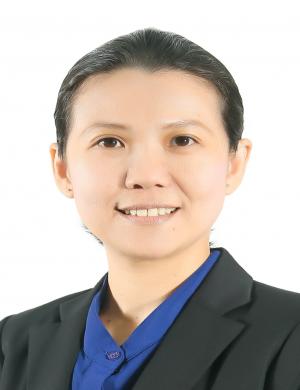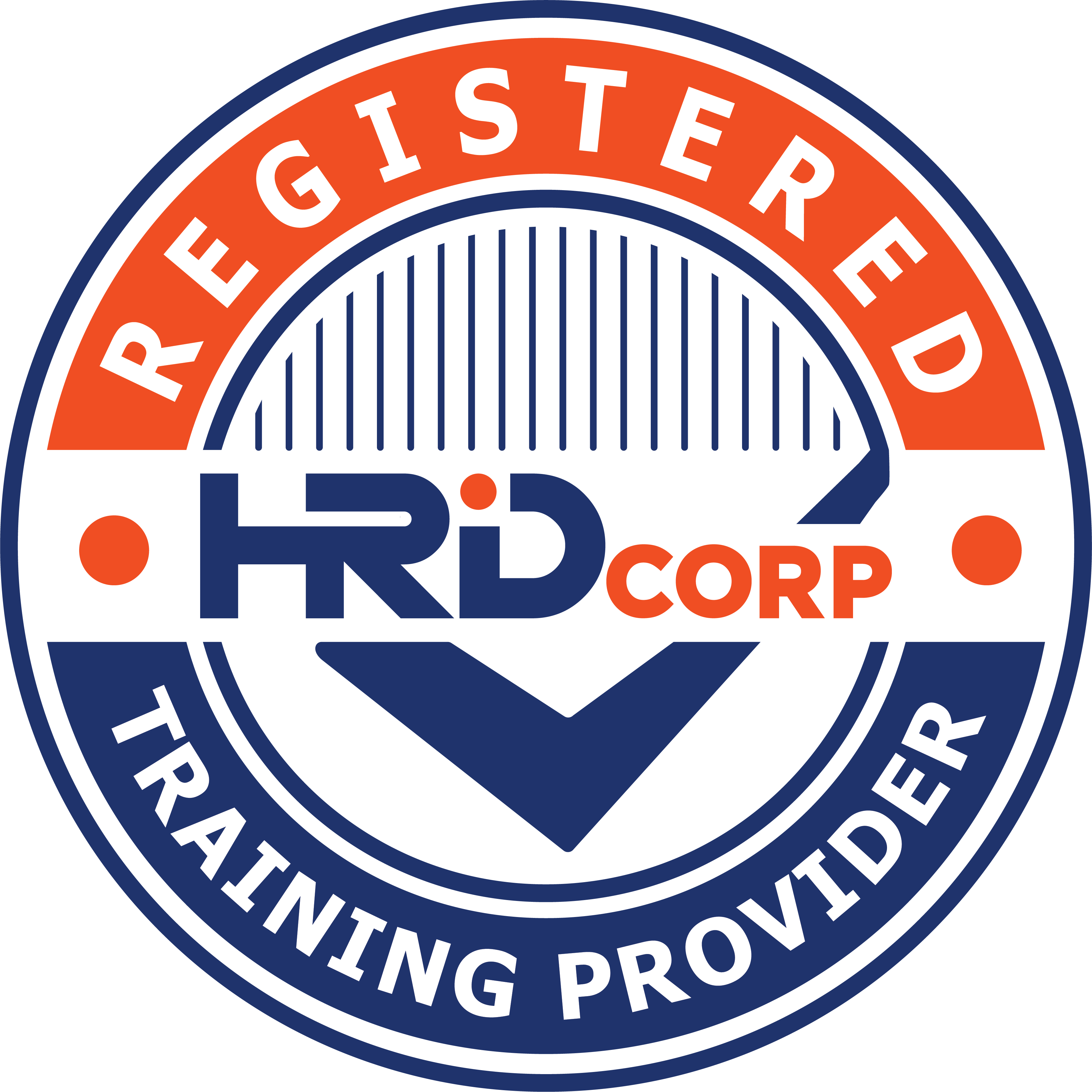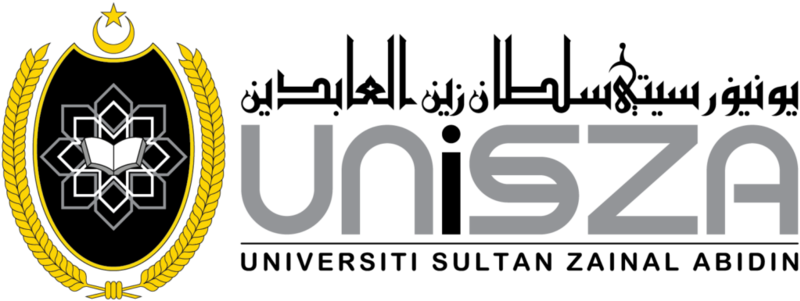


 TRADEMARK2U ACADEMY: TURNING KNOWLEDGE INTO WEALTH
TRADEMARK2U ACADEMY: TURNING KNOWLEDGE INTO WEALTH
In today’s knowledge-driven economy, intellectual property (IP) has become a critical component of business strategy and competitive advantage. Whether you are an entrepreneur looking to safeguard your brand or a legal professional seeking to deepen your expertise, understanding the intricacies of IP is essential.
TRADEMARK2U Academy offers a comprehensive range of specialized training programs designed to meet the evolving needs of the IP community.
From IP registration and enforcement to IP commercialization and global strategy, our courses are tailored to provide practical insights and actionable knowledge.
Join us and become part of a growing network of IP-savvy professionals who are driving innovation and business growth.
TRADEMARK2U Academy is your trusted partner in intellectual property education and training. Certified by the Human Resources Development Corporation (HRDC), serial no:200401032402 , our mission is to elevate the understanding and application of IP laws and best practices across diverse industries.
Our extensive experience in legal practice and service provision has sharpened our focus on offering intellectual property training services tailored to organizations' unique needs.
We offer comprehensive training programs designed for business owners, legal professionals, and innovators who seek to protect and leverage their intellectual assets.
Through expert-led training, practical courses, and a hands-on learning approach, we help individuals and organizations unlock the full potential of their IP portfolios, navigate complex IP landscapes with confidence, and create value and growth for their organizations.
TRADEMARK2U Academy is operating under TRADEMARK2U SDN BHD (670910-M)


At TRADEMARK2U Academy, our trainers and consultants are seasoned industry leaders and IP practitioners with extensive experience in trademark, patent, copyright, and industrial design in research and innovation. Our team includes registered IP experts, legal consultants, practising lawyers, experienced accountants and financial experts and business strategists who have worked with multinational corporations, startups, and research institutions across Asia.
Each trainer brings a wealth of knowledge, practical experience, and real-world case studies to the classroom, ensuring our participants gain not only theoretical understanding but also practical skills applicable in their professional growth.
Learn from the best and build your IP expertise with guidance from industry pioneers.

Adj. Prof. LAWRENCE YIP
LL.B (Bond)
Adjunct Professor ( Lincoln U.C.)
Chief Executive Officer
HRDC Trainer ID : 37471

Prof. Dr. Bryan Sidhu
Bsc C.I.S, Msc T.M, Phd E.D
Adjunct Professor (Lincoln U.C.)
Director of Academy | IPR Advisor
Certified IP Trainer
HRDC Trainer's ID: 05111
Email: bryan@trademark2u.org
Tel: (+60)12 2239516

Nicholas Kok
B.Biotech, Master of Biotech (Edinburgh)
Registered Patent Agent
Patent Manager | Certified IP Trainer
Email: patent.my@trademark2u.org
Tel: (+60)12 330 2536

Dr. Nur Ezaitie
Master of Law (UM) | Phd (UM)
Bachelor of Law (UUM)
Advocate & Solicitor (non-practising)
Legal Manager | Certified IP Trainer
HRDC Trainer ID: 38316
Email: legal.my@trademark2u.org
Tel: (+60)12-330-1396

Charine Cham YingYan
Bachelor of Biomedical Science (UTAR)
Bachelor of Law
IP Manager (China Section) | Certified IP Trainer
Email: china@trademark2u.org
Tel: +(6016)-2382702

Prof. Dr. Yong Chen Chen
PhD (International Economics), (UPM)
MEc, (International Economics) (UPM)
BSc (Hons)(Agribusiness) (UPM)

Dr. Lee Ching Shya
PhD in Chemical Engineering (UM)
PhD in Chem. Eng.(ENSIACET)
MSc, (Organik Sintetik) (UPM)
BSc, (PURE CHEMISTRY) (UM)
HRDC Trainer ID: 19427

Evelyn Voo
Master in Human Resource Dev. (Help Uni)
Bachelor in Business Management, (Sheffield Hallam)
HR Consultant | Certified HR Trainer
HRDC Trainer's ID : 37468
| Chapter Info | MODULE | : | TMCHAP01 - Introduction to Trademark Law and Procedure in Malaysia |
|---|---|---|
| TITLE OF COURSE / PROGRAMME | : | Introduction to Trademark Law and Procedure in Malaysia |
| DURATION | : | 1 hour 30 minutes |
| TARGET GROUP (BY DESIGNATION) | : | This program is for practitioners, IP managers and those who are interested in perusing IPR. |
| TARGETED INDUSTRY/INDUSTRIES | : | All Sectors |
| CERTIFICATION | : | Certification of Completion after the course. |
| COURSE OBJECTIVE | : | Provide an understanding of what trademarks are and their significance in Malaysian law. Explain the types of trademarks and key aspects of the trademark application process. Introduce the basic grounds for refusal of registration. |
| COURSE INTRODUCTION | : | The "Introduction to Trademark Law and Procedure in Malaysia" course offers a concise yet comprehensive exploration of the essentials of trademark law as it applies in Malaysia. Designed specifically for IP practitioners, managers, and professionals interested in intellectual property rights, this 1.5-hour program delves into the fundamentals of trademarks, their role within the Malaysian legal landscape, and the procedures involved in securing trademark protection. The course begins with an overview of trademarks, defining their purpose and explaining various types, including both traditional and non-traditional trademarks. It then addresses the trademark application process, covering key steps, expedited examination options, and renewal requirements. Furthermore, participants will gain insight into the primary grounds for refusal of trademark registration, enhancing their understanding of common legal challenges in securing trademarks. Participants will receive a Certification of Completion, marking their grasp of trademarks and their importance in protecting brand identity in all industry sectors. |
| : | .jpeg)
| |
| Chapter Info | MODULE | : | TMCHAP02 - Introduction to Trademark Law - Part B |
|---|---|---|
| TITLE OF COURSE / PROGRAMME | : | Introduction to Trademark Law - Part B |
| DURATION | : | 1 hour 30 minutes |
| TARGET GROUP (BY DESIGNATION) | : | This program is for IP Practitioners, IP Managers and those who are interested in perusing IPR. |
| TARGETED INDUSTRY/INDUSTRIES | : | All Sectors |
| CERTIFICATION | : | Certification of Completion after the course. |
| COURSE OBJECTIVE | : | 1. Understand the absolute grounds for refusal of trademark registration. 2. Recognize the importance of distinctiveness in trademarks. 3. Explore relevant case studies illustrating the grounds for refusal and the concept of distinctiveness. |
| COURSE INTRODUCTION | : | The "Introduction to Trademark Law - Part B" course is designed for IP practitioners, managers, and anyone invested in intellectual property rights who seeks a deeper understanding of trademark eligibility under Malaysian law. This 1.5-hour session expands upon foundational trademark concepts by focusing on the absolute grounds for refusal of registration and the essential quality of distinctiveness required for successful trademark protection. Through targeted modules, participants will explore critical aspects of trademark law, including non-distinctive or descriptive marks, graphical representability, and customary terms that hinder exclusivity. Additionally, this course integrates practical case studies, such as the ELBA GROUP SDN BHD and BATA LIMITED cases, offering real-world illustrations of trademark distinctiveness and public confusion. Completing this course equips attendees with the knowledge to assess trademark eligibility confidently, enhancing their ability to navigate trademark law complexities and safeguard valuable brand assets. |
| Chapter Info | MODULE | : | TMCHAP03 - Trademark Infringement Cases in Malaysia |
|---|---|---|
| TITLE OF COURSE / PROGRAMME | : | Trademark Infringement Cases in Malaysia |
| DURATION | : | 1 hour 30 minutes |
| TARGET GROUP (BY DESIGNATION) | : | This program is for IP Practitioners, IP Managers and those who are interested in perusing IPR. |
| TARGETED INDUSTRY/INDUSTRIES | : | All Sectors |
| CERTIFICATION | : | Certification of Completion after the course. |
| COURSE OBJECTIVE | : | 1. Analyze legal principles and interpretations of trademark law in Malaysian court rulings. 2. Understand the impact of landmark rulings on trademark disputes, including issues of non-use, goodwill, confusion, and passing off. 3. Apply case insights to real-life trademark issues, supporting both businesses and legal professionals. |
| COURSE INTRODUCTION | : | The "Trademark Infringement Cases in Malaysia" course offers an in-depth look into the complexities of trademark law through the lens of landmark Malaysian court cases. Tailored for IP practitioners, managers, and professionals keen on intellectual property rights, this 1.5-hour session examines pivotal legal interpretations and principles underlying trademark infringement. Participants will gain insights into essential issues such as goodwill, confusion, passing off, and the significance of "first use" through real case studies, including notable disputes like Mesuma Sports Sdn Bhd v. Majlis Sukan Negara Malaysia and Ho Tack Sien & Ors v. Rotta Research Laboratorium SpA & Anor. By exploring these rulings, attendees will learn how Malaysian courts approach trademark conflicts and apply these principles to support brand integrity. This course empowers participants to handle real-world trademark disputes effectively, making it a valuable learning experience for those committed to understanding the legal framework and protecting intellectual property in Malaysia. |
| Chapter Info | MODULE | : | TMCHAP04 - Trademark Legal Remedies, Offences, and Enforcement in Malaysia. |
|---|---|---|
| TITLE OF COURSE / PROGRAMME | : | Trademark Legal Remedies, Offences, and Enforcement in Malaysia. |
| DURATION | : | 1 hour 30 minutes |
| TARGET GROUP (BY DESIGNATION) | : | This program is for IP Practitioners, IP Managers and those who are interested in perusing IPR. |
| TARGETED INDUSTRY/INDUSTRIES | : | All Sectors |
| CERTIFICATION | : | Certification of Completion after the course. |
| COURSE OBJECTIVE | : | 1. Understand trademark infringement under the Malaysian Trademark Act 2019. 2. Explore the legal remedies available for trademark infringement actions. 3. Recognize the offences related to trademarks and the penalties involved. 4. Learn about the enforcement mechanisms and authorities responsible for regulating trademarks in Malaysia. |
| COURSE INTRODUCTION | : | The "Trademark Legal Remedies, Offences, and Enforcement in Malaysia" course provides an essential overview of the legal framework governing trademarks under the Malaysian Trademark Act 2019. Aimed at IP practitioners, managers, and those interested in intellectual property rights, this 1.5-hour session delves into the nature of trademark infringement, the legal remedies available, and the mechanisms for enforcing trademark protection in Malaysia. Participants will explore what constitutes infringement, learn about legal actions and remedies such as injunctions and damages, and review the processes for erasure and destruction of counterfeit goods. The course also covers trademark offences, including counterfeiting, and examines the roles and powers of enforcement authorities in combating trademark violations. By attending this course, participants will gain valuable knowledge on protecting trademarks effectively and navigating the legal remedies available to uphold brand integrity and prevent infringement. |
| Chapter Info | MODULE | : | TMCHAP05 - Understanding The Law of Passing Off |
|---|---|---|
| TITLE OF COURSE / PROGRAMME | : | UNDERSTANDING THE TORT OF PASSING OFF |
| DURATION | : | 1 hour 30 minutes |
| TARGET GROUP (BY DESIGNATION) | : | This program is for IP Practitioners, IP Managers and those who are interested in perusing IPR. |
| TARGETED INDUSTRY/INDUSTRIES | : | All Sectors |
| CERTIFICATION | : | Certification of Completion after the course. |
| COURSE OBJECTIVE | : | 1. Define the tort of passing off and understand its purpose in protecting business goodwill. 2. Explain the key elements required to establish a passing off claim, including goodwill, misrepresentation, and damage. 3. Analyze and apply legal principles from landmark Malaysian cases. 4. Differentiate passing off from trademark infringement. |
| COURSE INTRODUCTION | : | The "Understanding the Tort of Passing Off" course provides a deep dive into the principles and application of passing off, a fundamental tort in common law that safeguards business goodwill from unfair competition. Tailored for IP practitioners, managers, and professionals interested in intellectual property rights, this 1.5-hour course explains how passing off protects businesses against misrepresentation that could damage their reputation and cause confusion among consumers. Participants will explore the essential elements of passing off, including goodwill, misrepresentation, and damage, with real-world applications through landmark Malaysian case studies, such as McCurry Restaurant v. McDonald`s Corporation and Skyworld Development v. Skyworld Holdings. The course also differentiates passing off from trademark infringement, giving attendees a clearer understanding of how these two areas intersect and diverge in practice. This course equips participants with practical insights into protecting brand identity, making it a vital learning experience for anyone involved in intellectual property management or litigation. |
| Chapter Info | MODULE | : | TMCHAP06 - Trademark Parallel Importation in Malaysia |
|---|---|---|
| TITLE OF COURSE / PROGRAMME | : | TRADEMARK LAW: UNDERSTANDING PARALLEL IMPORTATION IN MALAYSIA |
| DURATION | : | 1 hour 30 minutes |
| TARGET GROUP (BY DESIGNATION) | : | This program is for IP Practitioners, IP Managers and those who are interested in perusing IPR. |
| TARGETED INDUSTRY/INDUSTRIES | : | All Sectors |
| CERTIFICATION | : | Certification of Completion after the course. |
| COURSE OBJECTIVE | : | 1. Define parallel importation and its implications under Malaysian trademark law. 2. Examine the legal rights of trademark holders in relation to parallel importation. 3. Review notable Malaysian cases on parallel importation and their outcomes. 4. Understand the conditions under which parallel importation may or may not constitute trademark infringement. |
| COURSE INTRODUCTION | : | The "Trademark Law: Understanding Parallel Importation in Malaysia" course offers an essential examination of parallel importation and its implications under Malaysian trademark law. Aimed at IP practitioners, managers, and those interested in intellectual property rights, this 1.5-hour session provides a clear understanding of how genuine goods imported without the trademark owner`s consent affect trademark rights, brand control, and market exclusivity. Through focused modules, participants will explore the rights of trademark holders in the context of parallel importation and review landmark Malaysian cases like the "Blue Panadol" case and the Eagle Coin trademark case. These real-world examples illuminate the legal boundaries and protections surrounding parallel importation, particularly when it involves material differences or lacks the owner`s consent. By attending, participants gain practical knowledge on how parallel importation impacts brand reputation and consumer perception, equipping them with insights to handle related disputes effectively. This course is a valuable resource for those seeking to navigate the complexities of parallel importation and protect trademark integrity in the Malaysian market. |
| Chapter Info | MODULE | : | TMCHAP07 - Assessing Damages in Trademark Infringement and Passing Off |
|---|---|---|
| TITLE OF COURSE / PROGRAMME | : | Assessing Damages in Trademark Infringement and Passing Off |
| DURATION | : | 1 hour 30 minutes |
| TARGET GROUP (BY DESIGNATION) | : | This program is for IP Practitioners, IP Managers and those who are interested in perusing IPR. |
| TARGETED INDUSTRY/INDUSTRIES | : | All Sectors |
| CERTIFICATION | : | Certification of Completion after the course. |
| COURSE OBJECTIVE | : | 1. Understand the principles and objectives of assessing damages in trademark infringement and passing off cases. 2. Explore key case studies demonstrating the methods used in calculating damages. 3. Differentiate between various approaches, such as loss of sales, profit margins, and loss of goodwill. |
| COURSE INTRODUCTION | : | The "Assessing Damages in Trademark Infringement and Passing Off" course offers a comprehensive guide to the principles and methodologies involved in calculating damages for trademark-related disputes. Tailored for IP practitioners, managers, and professionals interested in intellectual property rights, this 1.5-hour session covers essential frameworks for evaluating financial loss and harm to brand reputation in cases of trademark infringement and passing off. Participants will explore key concepts such as restitutio in integrum the principle of restoring the claimant to their original position and analyze case studies, including the notable Wembley Gypsum Products Sdn Bhd and Taiping Poly (M) Sdn Bhd cases. By examining various calculation methods, from profit loss and sales impact to goodwill reduction, attendees will gain practical skills to assess and quantify damages accurately. This course equips participants with the knowledge to approach trademark disputes methodically, ensuring fair compensation for businesses affected by infringement. |
| Chapter Info | MODULE | : | PTCHAP01 - Introduction to Patent Law: The Foundation of Innovation Protection |
|---|---|---|
| TITLE OF COURSE / PROGRAMME | : | Introduction to Patent Law: The Foundation of Innovation Protection |
| DURATION | : | 1.5 HOURS |
| TARGET GROUP (BY DESIGNATION) | : | This program is for IP Practitioners, IP Managers and those who are interested in perusing IPR. |
| TARGETED INDUSTRY/INDUSTRIES | : | All Sectors |
| CERTIFICATION | : | Certification of Completion after the course. |
| COURSE OBJECTIVE | : | 1. Explain the key criteria for patentability in Malaysia under the Patent Act 1983. 2. Distinguish between patentable and non-patentable inventions. 3. Familiarize with the types of intellectual property rights and the specific rights patents provide. |
| COURSE INTRODUCTION | : | Course Modules: Module 1: Overview of Intellectual Property Rights (15 minutes) Types of IP Rights: Introduction to patents, trademarks, industrial design, copyright, geographical indications, circuit layout design, and plant varieties. Module 2: Fundamentals of Patents (20 minutes) Definition of a Patent: Exclusive rights for inventions—either product or process—that introduce new solutions or ways of doing something. Patent Grant: Explanation of patent term duration (20 years), renewal process, and the requirement for public disclosure. Module 3: Patentability Requirements (25 minutes) Criteria for Patentability: Novelty, inventive step, and industrial applicability. Novelty: The invention must be new and not disclosed as prior art. Inventive Step: The invention must not be obvious to someone skilled in the field. Industrial Applicability: The invention must be usable in industry. Non-Patentable Inventions: Exclusions under Section 13, including scientific theories, plant varieties, business methods, and medical treatments. Module 4: Assessing Novelty and Inventive Step (15 minutes) Tests for Novelty and Inventiveness: Explanation of methods, including the Windsurfing/Pozzoli four-step approach for assessing the inventive step without hindsight bias. Case Examples: Illustrative scenarios to show distinctions between novel and non-novel inventions. Module 5: Industrial Applicability and Utility Innovations (10 minutes) Industrial Application: Explanation of the requirement for an invention to have utility in any kind of industry. Utility Innovation Patents: Overview of patents that fulfill invention, novelty, and industrial applicability but not inventiveness. ________________________________________ Assessment and Q&A (5 minutes) Interactive Q&A: To gauge understanding and answer questions on patentability requirements, the patent application process, and relevant case laws. |
| Chapter Info | MODULE | : | PTCHAP02 - Navigating Patent Procedures: From National Application to Global Protection |
|---|---|---|
| TITLE OF COURSE / PROGRAMME | : | PTCHAP02 - Navigating Patent Procedures: From National Application to Global Protection |
| DURATION | : | 1 Hours 30 min. |
| TARGET GROUP (BY DESIGNATION) | : | This program is for IP Practitioners, IP Managers and those who are interested in perusing IPR. |
| TARGETED INDUSTRY/INDUSTRIES | : | ALL SECTORS |
| CERTIFICATION | : | Certificate of Completion |
| COURSE OBJECTIVE | : | 1. Understand the various types of patent applications, including national, regional, and international options. 2. Identify the key steps in the Malaysian national patent application process. 3. Explore expedited examination requirements and conditions. 4. Gain insights into filing patent applications abroad using the Paris Convention, Patent Cooperation Treaty (PCT), and Patent Prosecution Highway (PPH). |
| COURSE INTRODUCTION | : | Course Modules: Module 1: Overview of Patent Application Types (15 minutes) ? National Patent Applications: Requirements and typical timelines in Malaysia. ? Regional Patent Applications: Overview of regional patent systems, such as the European Patent Convention. ? International Patent Applications (PCT): Introduction to the Patent Cooperation Treaty and its benefits for global filing. Module 2: The National Patent Application Process (20 minutes) ? Stages of Examination: o Preliminary Examination: Formality check under Section 29 of the Malaysian Patents Act. o Substantive Examination: Evaluation of novelty, inventive step, and industrial applicability. ? Expedited Examination: Conditions for expedited examination under Regulation 27E of the Patent Act, including public interest, commercial viability, and green technologies. Module 3: Filing Foreign Patent Applications (30 minutes) ? Paris Convention: o Overview and Benefits: Simplified foreign filing with a 12-month priority period. o Eligibility and Strategic Advantages: Filing in individual countries for targeted protection. ? Patent Cooperation Treaty (PCT): o Two-Phase Process: International Phase and National Phase. o Advantages: Time extension for filing, prior art search, and patentability insights. o International Search Report (ISR): How the ISR aids applicants in amending claims for stronger patents. ? Patent Prosecution Highway (PPH): o Accelerated Examination: Requirements and benefits for fast-tracking applications based on previous approvals in another jurisdiction. o Examples: Use of the PPH with countries like Japan, Europe, and the United States. Module 4: Patent Maintenance and Best Practices (15 minutes) ? Maintenance and Renewal: Patent term durations, renewal requirements, and best practices for retaining patent rights. ? Global Filing Strategies: Tips for protecting inventions internationally, including non-disclosure agreements, assessing patentability, and compliance with foreign regulations. ________________________________________ Assessment and Q&A (10 minutes) ? Interactive Q&A: Discussion on patent filing strategies, foreign application methods, and participant questions on specific case scenarios. |
| Chapter Info | MODULE | : | PTCHAP03 - Patent Drafting for Beginners: The Art of Structuring Effective Claims |
|---|---|---|
| TITLE OF COURSE / PROGRAMME | : | PTCHAP03 - Patent Drafting for Beginners: The Art of Structuring Effective Claims |
| DURATION | : | 1 hour 30 minutes |
| TARGET GROUP (BY DESIGNATION) | : | This program is for IP Practitioners, IP Managers and those who are interested in perusing IPR. |
| TARGETED INDUSTRY/INDUSTRIES | : | All Sectors |
| CERTIFICATION | : | Certification of Completion after the course. |
| COURSE OBJECTIVE | : | 1. Understand the key components of a patent claim and their significance in defining invention scope. 2. Learn the structure and function of various claim types, including independent, dependent, and means-plus-function claims. 3. Apply techniques for drafting precise and enforceable patent claims. |
| COURSE INTRODUCTION | : | Course Modules: Module 1: Introduction to Patent Claims (15 minutes) Overview of Patent Claims: Explanation of claims as boundaries of protection. Parts of a Claim: Introduction to the preamble, transitional phrases, and the body of a claim. Module 2: Structuring Effective Claims (30 minutes) Open-ended vs. Closed Claims: Differences between phrases like "comprising" and "consisting of" and their impact on claim scope. Dependent and Independent Claims: Crafting claims that establish essential invention elements versus additional specifications. Means-Plus-Function Claims: Writing claims that define elements by function rather than structure. Module 3: Claim Types and Drafting Techniques (25 minutes) Two-Part and Improvement Claims: How to structure claims highlighting prior art with a novel improvement. Proper Antecedent Basis: Ensuring clarity by using "a" and "the" correctly for the first and subsequent references to claim elements. Markush Claims: Drafting claims using alternative elements in a single claim for broader protection. Module 4: Practical Application and Case Examples (10 minutes) Claim Punctuation and Grammar: How to format claims accurately to meet patent office requirements. Real-Life Claim Examples: Review and analysis of sample claims, highlighting effective drafting techniques. ________________________________________ Assessment and Q&A (10 minutes) Interactive Q&A: Answer participant questions on claim types, structures, and best practices in patent claim drafting. |
| Chapter Info | MODULE | : | PTCHAP04 - Patent Drafting Essentials: Key Insights on Crafting Effective Claims |
|---|---|---|
| TITLE OF COURSE / PROGRAMME | : | PTCHAP04 - Patent Drafting Essentials: Key Insights on Crafting Effective Claims |
| DURATION | : | 1 hour 30 minutes |
| TARGET GROUP (BY DESIGNATION) | : | This program is for IP Practitioners, IP Managers and those who are interested in perusing IPR. |
| TARGETED INDUSTRY/INDUSTRIES | : | All Sectors |
| CERTIFICATION | : | Certification of Completion after the course. |
| COURSE OBJECTIVE | : | 1. Understand the types and structures of patent claims, including apparatus, method, and composition claims. 2. Learn strategies for drafting clear and enforceable patent claims, including tips on broad and narrow claim drafting. 3. Avoid common pitfalls in patent drafting related to clarity, terminology, and consistency. |
| COURSE INTRODUCTION | : | Course Modules: Module 1: Overview of Claim Types (15 minutes) Apparatus or Device Claims: Claims protecting physical embodiments like systems and devices. Method or Process Claims: Claims defining a sequence of steps for completing a process. Composition Claims: Claims focused on the chemical or physical makeup of materials or compounds. Product-by-Process Claims: Claims defining products based on the process used to create them. Module 2: Drafting Broad and Narrow Claims (25 minutes) Balancing Scope: Techniques for drafting a mix of broad and narrow claims to maximize protection. Examples of Broad and Narrow Drafting: Practical examples illustrating how to scale claim scope. Two-Part Claims and Markush Claims: Methods for improving flexibility while retaining claim integrity. Module 3: Ensuring Claim Clarity and Consistency (30 minutes) Choosing the Right Words: Avoiding ambiguous terms and using clear, precise language. Avoiding Inconsistencies: How to maintain coherence between claims and descriptions. Proper Antecedent Basis and Claim Punctuation: Techniques to ensure accuracy and minimize examiner objections. Module 4: Practical Tips and Best Practices (10 minutes) Claim Drafting Tips: Insights into efficient drafting, reducing words, and avoiding redundancy. Review and Revision: Methods to refine claims for clarity, conciseness, and enforceability. ________________________________________ Assessment and Q&A (10 minutes) Interactive Q&A: Address participant questions on claim types, scope adjustments, and drafting strategies. |
| Chapter Info | MODULE | : | PTCHAP05 - Patent Claims Interpretation by UK Courts: Key Approaches and Landmark Cases |
|---|---|---|
| TITLE OF COURSE / PROGRAMME | : | PTCHAP05 - Patent Claims Interpretation by UK Courts: Key Approaches and Landmark Cases |
| DURATION | : | 1 hour 30 minutes |
| TARGET GROUP (BY DESIGNATION) | : | This program is for IP Practitioners, IP Managers and those who are interested in perusing IPR. |
| TARGETED INDUSTRY/INDUSTRIES | : | All Sectors |
| CERTIFICATION | : | Certification of Completion after the course. |
| COURSE OBJECTIVE | : | 1. Understand key approaches used by UK courts to interpret patent claims, including literal interpretation and the doctrine of equivalents. 2. Analyze landmark UK cases that illustrate the evolution of patent interpretation. 3. Gain insights into the "pith and marrow" approach and the impact of European harmonization on claim interpretation. |
| COURSE INTRODUCTION | : | Module 1: Introduction to Patent Claim Interpretation (15 minutes) Literal vs. Purposive Interpretation: Overview of traditional literal interpretation and the purposive approach. European Harmonization: Influence of the European Patent Convention and Article 69 EPC on UK courts. Module 2: Key Interpretation Approaches (25 minutes) Pith and Marrow Doctrine: Understanding this approach and its historical significance. Doctrine of Equivalents: How the UK courts assess equivalence in light of modern advancements. Module 3: Landmark Case Studies (30 minutes) Rodi & Wienenberger v. Henry Showell (1966): An early application of the "pith and marrow" approach. Catnic Components v. Hill & Smith (1982): The introduction of the purposive construction approach. Improver v. Remington (1990): Development of the "Improver" or "Protocol" questions to assess variants. Kirin-Amgen v. Hoechst Marion Roussel (2005): Refinement of claim interpretation with biotechnology patents. Actavis v. Eli Lilly (2017): Modern application of the doctrine of equivalents in the UK. Module 4: Practical Insights and Implications (10 minutes) Applying Precedents to Patent Drafting: Lessons on how claim wording affects enforceability. Implications for Patent Strategy: Practical considerations for international patent filings and litigation. ________________________________________ Assessment and Q&A (10 minutes) Interactive Q&A: Discussion on case implications, patent strategies, and modern claim interpretation techniques. |
| Chapter Info | MODULE | : | PTCHAP06 - Patent Ownership: Legal Principles and Case Analyses |
|---|---|---|
| TITLE OF COURSE / PROGRAMME | : | PTCHAP06 - Patent Ownership: Legal Principles and Case Analyses |
| DURATION | : | 1 hour 30 minutes |
| TARGET GROUP (BY DESIGNATION) | : | This program is for IP Practitioners, IP Managers and those who are interested in perusing IPR. |
| TARGETED INDUSTRY/INDUSTRIES | : | ALL SECTORS |
| CERTIFICATION | : | Certification of Completion after the course. |
| COURSE OBJECTIVE | : | 1. Understand the legal principles governing patent ownership under the Patents Act 1983. 2. Analyze the criteria for determining patent rights in employer-employee and independent collaboration contexts. 3. Review significant case studies to illustrate judicial reasoning and practical applications of patent ownership law. |
| COURSE INTRODUCTION | : | Course Modules: Module 1: Foundations of Patent Ownership (20 minutes) Rights to a Patent: Overview of the criteria for ownership, including the roles of inventors, co-inventors, and priority based on the Patents Act 1983. Judicial Assignment of Patents: Legal grounds for assignment and judicial decisions under Section 19 of the Patents Act. Module 2: Patent Ownership in Employment and Commissioned Work (25 minutes) Employer Rights to Employee Inventions: Explanation of Section 20 regarding inventions created during employment. Equitable Remuneration: When inventors are entitled to additional compensation based on unforeseen economic value. Case Analysis: Shanks v Unilever (2019): Supreme Court decision on employee rights, equitable remuneration, and the "outstanding benefit" principle. Module 3: Landmark Cases on Patent Ownership (30 minutes) Soon Seng Palm Oil Mill v. Jang Kim Luang (2011): Judicial assignment and ownership rights in cases involving collaborative R&D. Shanks v. Unilever (UK Supreme Court): Defining "outstanding benefit" and assessing fair compensation for employee inventions. Kelly v. GE Healthcare (2009): Factors affecting entitlement to equitable remuneration. Module 4: Practical Insights and Best Practices (10 minutes) Defining Ownership in Collaborative Projects: Tips for contract provisions, inventor rights, and IP strategy. Ensuring Compliance with Patent Law: Practical advice for IP management in employment and joint venture contexts. ________________________________________ Assessment and Q&A (5 minutes) Interactive Q&A: Discussion on patent ownership principles, case outcomes, and practical applications in patent management. |
| Chapter Info | MODULE | : | PTCHAP07 - Patent Invalidation: The Rise and Fall of the SKB Shutters Case |
|---|---|---|
| TITLE OF COURSE / PROGRAMME | : | PTCHAP07 - Patent Invalidation: The Rise and Fall of the SKB Shutters Case |
| DURATION | : | 1 hour 30 minutes |
| TARGET GROUP (BY DESIGNATION) | : | This program is for IP Practitioners, IP Managers and those who are interested in perusing IPR. |
| TARGETED INDUSTRY/INDUSTRIES | : | ALL SECTORS |
| CERTIFICATION | : | Certification of Completion after the course. |
| COURSE OBJECTIVE | : | 1. Understand the principles and legal framework surrounding patent invalidation in Malaysia. 2. Analyze the significance of novelty, inventive step, and prior art in determining patent validity. 3. Examine the judicial reasoning behind key cases, including SKB Shutters v. Seng Kong Shutter Industries, and the implications for patent drafting and claim structure. |
| COURSE INTRODUCTION | : | Course Modules: Module 1: Introduction to Patent Claims Invalidation (15 minutes) Overview of Patent Validity Requirements: Understanding novelty, inventive step, and the role of prior art in patent law. Legal Framework: Introduction to the Patents Act 1983 provisions related to patent invalidation in Malaysia. Module 2: Key Invalidation Cases and Analysis (30 minutes) SKB Shutters v. Seng Kong Shutter Industries [2015]: Examination of the facts, issues, and court decision. Merck Sharp & Dohme v. Hovid Berhad [2019]: Overview of the case, focusing on the treatment of independent and dependent claims and the shift from SKB Shutters. Implications for Future Cases: Judicial interpretation trends and their impact on patent claims structure. Module 3: Criteria for Patent Invalidation (25 minutes) Test for Novelty and Anticipation: Evaluating prior art and the requirements for novelty in a claim. Assessing Inventive Step: The test for inventive step, including methods to evaluate non-obviousness. Role of Experts in Patent Evaluation: Importance of expert opinions in assessing technical aspects and the relevance of skilled persons in patent adjudication. Module 4: Lessons Learned and Best Practices (15 minutes) Patent Drafting Techniques: Tips for drafting robust claims to withstand invalidation challenges. Evaluating Dependent vs. Independent Claims: Ensuring each claim’s validity to prevent the entire patent from falling if one claim fails. Global Trends in Patent Invalidation: How Malaysian case law aligns with or diverges from international trends in patent law. ________________________________________ Assessment and Q&A (5 minutes) Interactive Q&A: Discussion on case implications, patent drafting strategies, and handling prior art considerations. |
| Chapter Info | MODULE | : | EC01 - Comprehensive Training on Economics Foresight |
|---|---|---|
| TITLE OF COURSE / PROGRAMME | : | EC01 - Comprehensive Training on Economics Foresight |
| DURATION | : | 16 Hours |
| TARGET GROUP (BY DESIGNATION) | : | ALL SECTORS. |
| TARGETED INDUSTRY/INDUSTRIES | : | ALL SECTORS |
| CERTIFICATION | : | YES |
| COURSE OBJECTIVE | : | Learning objectives: 1. To understanding the supply chain of manufacturing sector in Malaysia, China and selected ASEAN countries. 2. To perform scenario analysis for manufacturing exports for Malaysia China and selected ASEAN countries. 3. Foresight of exports on economic performance. |
| COURSE INTRODUCTION | : | Training Course Content Day 1 Understanding the supply chain of manufacturing sector in Malaysia The supply chain landscape between Malaysia and selected ASEAN countries and China Activity 1: The role of industry within the supply chain ecosystem Case study 1 : supply chain for manufacturing sector between Malaysia and China Case study 2: Supply chain for manufacturing sector between Malaysian and ASEAN countries. Day 2 Exports analysis among ASEAN and China: Concepts, ideas and debate Case study : Myths and reality of export performance between ASEAN and China Day 3 Scenario analysis 1: Technology disruptions on exports of manufacturing sector for Malaysia Activity 2: Concept and case analysis Scenario analysis 2: Resources increase in manufacturing sector in Malaysia and its impact on Malaysian exports to China (case for selected ASEAN countries with China also available) Activity 3: Concept and case analysis Day 4 Foresight: The impact of export of manufacturing sector on economic performance (case of China and selected ASEAN countries) Activity 4: Group sharing session based on the foresight output |
| Chapter Info | MODULE | : | TMSC01 - Introduction to Trademark Law and Procedure in Malaysia ( ID: 10001486278 ) |
|---|---|---|
| TITLE OF COURSE / PROGRAMME | : | TMSC01 - Introduction to Trademark Law and Procedure in Malaysia |
| DURATION | : | 4 Hours |
| TARGET GROUP (BY DESIGNATION) | : | IP Practitioners, IP Managers, and anyone interested in Intellectual Property Rights (IPR) |
| TARGETED INDUSTRY/INDUSTRIES | : | All Sectors |
| CERTIFICATION | : | Certificate of Attendance |
| COURSE OBJECTIVE | : | Learning Objectives 1. Understand the definition and types of trademarks. 2. Gain insights into the trademark application and registration process in Malaysia. 3. Comprehend grounds for refusal, focusing on distinctiveness and related legal aspects. 4. Analyze relevant case studies to illustrate key concepts. 5. Apply practical knowledge of trademark application through a guided workshop. |
| COURSE INTRODUCTION | : | Ice-Breaking Session Duration: 30 minutes Activity: Introductions and Interactive Icebreaker Objective: Encourage participants to get acquainted, discuss their backgrounds and roles, and share their motivations for learning about trademark law. This session fosters a collaborative environment, helping participants feel more comfortable engaging in discussions. Module 1: Overview of Trademarks Duration: 30 minutes Reference: TMCHAP01A and TMChap01 Topics: ? Definition of Trademarks (Section 3(1) TMA): Explanation of trademarks as any sign capable of distinguishing goods or services. Includes the importance of "distinctive character" under the trademark law. ? Types of Trademarks: o Traditional Trademarks (words, logos, symbols, slogans). o Non-traditional Trademarks (sound, color, motion, 3D shapes, scents). Module 2: Trademark Application Process Duration: 1 hour Reference: TMCHAP01A, TMChap01, and TMChap02 Topics: ? Key Steps in Filing a Trademark Application: o Procedure for applying for trademark registration in Malaysia, including submission, examination, and decision steps. ? Expedited Examination: o Criteria and reasons for requesting expedited processing, such as cases of public interest or ongoing infringement. ? Trademark Renewal: o Understanding renewal requirements, the 10-year validity period, and consequences of non-use (e.g., cancellation if not used for three consecutive years). Tea Break Duration: 15 minutes Module 3: Grounds for Refusal of Registration Duration: 1 hour 15 minutes Reference: TMCHAP01B, TMChap01, and TMChap02 Topics: ? Absolute Grounds for Refusal (Section 23(1) TMA): o Explanation of conditions under which a trademark may be refused, including lack of graphical representation and distinctiveness, descriptiveness, customary or generic terms, and public interest concerns. ? Distinctiveness: o Trademark strength spectrum: Discuss weak trademarks (generic or descriptive) vs. strong trademarks (unique or coined). Examples like ?Apple? for computers illustrate distinctiveness in different sectors. ? Case Studies: o ELBA GROUP v. Pendaftar Cap Dagangan: Analysis of phonetic similarity and potential public confusion. o BATA LIMITED v. Sim Ah Ba: Exploration of visual, aural, and conceptual factors in determining likelihood of confusion. ? Interactive Discussion: Small group activity to analyze example scenarios and apply grounds for refusal concepts. Module 4: Trademark as Property and Licensing Duration: 40 minutes Reference: TMCHAP01A Topics: ? Trademark as Personal Property (Section 62 TMA): o Understanding that registered trademarks are considered movable property and can be subjected to licenses and assignments. ? Licensing and Exclusive Rights: o Different types of licenses (general, limited, exclusive), requirements for enforceability, and legal rights of licensees. ? Assignment and Transfer: o Procedures and conditions for transferring trademark ownership, including co-ownership issues and rights of co-proprietors. Module 5: Summary and Q&A Duration: 20 minutes Reference: All Modules Topics: ? Recap of key concepts: Definition and types of trademarks, application process, grounds for refusal, distinctiveness, and trademark as property. ? Open discussion and Q&A session to clarify concepts and address participant questions. Assessment: ? Interactive Q&A sessions throughout to gauge understanding and encourage engagement. ? Final review to reinforce course objectives and ensure key takeaways. |
| Chapter Info | MODULE | : | Trademark Law and Procedure in Malaysia ( ID: 10001486285) |
|---|---|---|
| TITLE OF COURSE / PROGRAMME | : | Trademark Law and Procedure in Malaysia ( ID: 10001486285) |
| DURATION | : | 14 hours |
| TARGET GROUP (BY DESIGNATION) | : | ALL SECTORS |
| TARGETED INDUSTRY/INDUSTRIES | : | ALL INDUSTRIES |
| CERTIFICATION | : | Certificate of Completion |
| COURSE OBJECTIVE | : | The objective of this two-day Trademark Law and Procedure program is to provide participants with a comprehensive understanding of trademark law, its applications, and legal implications. |
| COURSE INTRODUCTION | : | Day 1: Fundamentals of Trademark Law 1. 9:00 AM - 9:30 AM: Icebreaker Session Duration: 30 minutes Purpose: Engage participants and establish rapport. 2. 9:30 AM - 10:30 AM: Introduction to Trademark Law (TM Chap 01A) Duration: 1 hour Overview of trademark basics, legal definitions, and importance in commerce. 3. 10:30 AM - 11:30 AM: Grounds of Refusal (TM Chap 01B) Duration: 1 hour Detailed discussion on reasons for trademark refusal. 4. 11:30 AM - 12:00 PM: Discussion and Q&A Duration: 30 minutes Open forum for addressing participant questions. 5. 12:00 PM - 1:00 PM: Lunch Break Duration: 1 hour 6. 1:00 PM - 2:30 PM: Trademark Infringement Case Studies (TM Chap 02) Duration: 1.5 hours Review of case studies to illustrate trademark infringement. 7. 2:30 PM - 2:45 PM: Discussion and Q&A Duration: 15 minutes 8. 2:45 PM - 3:00 PM: Tea Break Duration: 15 minutes 9. 3:00 PM - 5:00 PM: Group Discussion and Presentation - Mock TM Hearing (WS01) Duration: 2 hours Interactive mock hearing to apply learned concepts. 10. 5:00 PM - 5:30 PM: Closing and Q&A Duration: 30 minutes Total Hours for Day 1: 7 hours ________________________________________ Day 2: Advanced Topics in Trademark Law 1. 9:00 AM - 10:30 AM: The Tort of Passing Off (TM Chap 04) Duration: 1.5 hours Exploration of "passing off" and its legal implications. 2. 10:30 AM - 12:00 PM: Trademark Offences, Enforcement, and Remedies (TM Chap 03) Duration: 1.5 hours Analysis of offences, legal enforcement, and available remedies. 3. 12:00 PM - 1:30 PM: Lunch Break Duration: 1.5 hours 4. 1:30 PM - 3:00 PM: Parallel Importation (TM Chap 05) Duration: 1.5 hours Examination of legal issues surrounding parallel importation. 5. 3:00 PM - 3:30 PM: Tea Break Duration: 30 minutes 6. 3:30 PM - 5:00 PM: Assessment of Damages (TM Chap 06) Duration: 1.5 hours Discussion on determining and assessing damages in trademark cases. 7. 5:00 PM - 5:30 PM: Group Discussion and Presentation - Damages Workshop (WS04) Duration: 1 hour Group work to discuss and present on damages assessment. 8. 5:30 PM - 6:00 PM: Closing and Q&A Duration: 30 minutes Total Hours for Day 2: 7.5 hours |
| Chapter Info | MODULE | : | Patent Laws & Procedures - Intermediate Level ( ID: 10001486071 ) |
|---|---|---|
| TITLE OF COURSE / PROGRAMME | : | Patent Laws & Procedures - Intermediate Level ( ID: 10001486071 ) |
| DURATION | : | 14 Hours |
| TARGET GROUP (BY DESIGNATION) | : | ALL SECTORS |
| TARGETED INDUSTRY/INDUSTRIES | : | ALL SECTORS |
| CERTIFICATION | : | CERTIFICATE OF COMPLETION |
| COURSE OBJECTIVE | : | Equip participants with foundational and advanced knowledge of patent law, covering patentability, procedures, ownership, invalidation, and interpretation. The second day will focus on patent drafting skills essential for creating strong, enforceable claims. |
| COURSE INTRODUCTION | : | Day 1: Fundamentals of Patent Law and Procedures • 9:00 AM - 9:30 AM: Icebreaker & Course Introduction Duration: 30 minutes Purpose: Familiarize participants with each other and review course objectives. • 9:30 AM - 11:00 AM: Introduction to Patent Law Duration: 1.5 hours Module : PTCHAP01 Content: Overview of patent law, criteria for patentability (novelty, inventive step, industrial applicability), types of intellectual property rights, and distinctions between patentable and non-patentable inventions. • 11:00 AM - 12:30 PM: Navigating Patent Procedures Duration: 1.5 hours Module : PTCHAP02) Content: Covers national and international patent application procedures, including expedited examination, the Patent Cooperation Treaty (PCT), and Patent Prosecution Highway (PPH). • 12:30 PM - 1:30 PM: Lunch Break • 1:30 PM - 3:00 PM: Patent Ownership Principles and Case Analysis Duration: 1.5 hours Module: PTCHAP06 • Content: Legal principles governing patent ownership, employer-employee rights, collaborative R&D contexts, and significant case studies. • 3:00 PM - 3:15 PM: Tea Break • 3:15 PM - 4:45 PM: Patent Invalidation and Key Case Study (SKB Shutters) Duration: 1.5 hours (Module PTCHAP07) Content: Overview of invalidation grounds, assessing prior art, inventive step, and implications from landmark cases like SKB Shutters and Merck Sharp & Dohme. • 4:45 PM - 5:30 PM: Group Discussion and Workshop: Patent Validity and Ownership Scenarios Duration: 45 minutes Activity: Analyze hypothetical scenarios on patent validity and ownership rights, fostering group discussion and practical application. Total Hours for Day 1: 7 hours Day 2: Patent Drafting and Advanced Claim Interpretation • 9:00 AM - 10:30 AM: Patent Claims Interpretation by UK Courts Duration: 1.5 hours Module: PTCHAP05 Content: Study of key UK case law on claim interpretation, focusing on literal vs. purposive approaches, the doctrine of equivalents, and European harmonization. • 10:30 AM - 12:00 PM: Patent Drafting for Beginners Duration: 1.5 hours Module : PTCHAP03 Content: Fundamentals of patent claim structure, including independent and dependent claims, as well as drafting techniques for clarity and enforceability. • 12:00 PM - 1:30 PM: Lunch Break • 1:30 PM - 3:00 PM: Patent Drafting Essentials Duration: 1.5 hours Module : PTCHAP04 Content: Advanced drafting techniques for apparatus, method, and composition claims, balancing broad and narrow claim language, and ensuring consistency. • 3:00 PM - 3:15 PM: Tea Break • 3:15 PM - 4:45 PM: Workshop: Drafting and Reviewing Patent Claims Duration: 1.5 hours Activity: Hands-on drafting exercise where participants draft and review claims for a hypothetical invention, focusing on clarity, scope, and enforceability. • 4:45 PM - 5:30 PM: Closing Discussion & Q&A Duration: 45 minutes Purpose: Recap of key concepts, address participant questions, and provide guidance on further learning resources. Total Hours for Day 2: 7 hours This course outline provides participants with a structured journey from understanding fundamental patent law to developing practical patent drafting skills essential for IP practitioners. |
| Chapter Info | MODULE | : | Advance Patent Law and Procedure ( ID: 10001485979 ) |
|---|---|---|
| TITLE OF COURSE / PROGRAMME | : | Advance Patent Law and Procedure ( ID: 10001485979 ) |
| DURATION | : | 21 HOURS |
| TARGET GROUP (BY DESIGNATION) | : | ALL SECTORS |
| TARGETED INDUSTRY/INDUSTRIES | : | ALL SECTORS |
| CERTIFICATION | : | CERTIFICATE OF COMPLETION |
| COURSE OBJECTIVE | : | To deliver comprehensive training in patent law, covering patentability, application procedures, ownership rights, prior art search and analysis, and practical skills in drafting and interpreting patent claims. |
| COURSE INTRODUCTION | : | Day 1: Fundamentals of Patent Law and Application Procedures 9:00 AM - 9:30 AM: Icebreaker & Course Introduction Duration: 30 minutes 9:30 AM - 10:00 AM: Introduction to Patent Law: The Foundation of Innovation Protection. Duration: 30 minutes Module Reference: PTCHAP01A Content: Overview of patent basics, the Malaysian Patent Act, types of IP rights, and patentable vs. non-patentable inventions. 10:00 AM - 11:30 AM: Patentability Requirements Duration: 1.5 hours Module Reference: PTCHAP01A Content: Covers novelty, inventive step, and industrial applicability with examples of non-patentable inventions. 11:30 AM - 12:30 PM: Navigating Patent Procedures: From National Application to Global Protection. Duration: 1 hour Module Reference: PTCHAP01B Content: Explanation of the Malaysian patent process, expedited examination, and international filing strategies. 12:30 PM - 1:30 PM: Lunch Break 1:30 PM – 3:00 PM: Patent Ownership: Legal Principles and Case Analyses Duration: 1.5 hours Module Reference: PTCHAP04 Content: Examines ownership principles in employer-employee contexts, judicial assignment, and relevant case law. 3:00 PM - 3:15 PM: Tea Break 3:15 PM – 4:45 PM: Workshop 1: Advising a Client on Patent Strategy Duration: 1.5 hours Module Reference: PTWS01-01-INTRO Activity: Participants analyze prior disclosures and develop a filing strategy for a hypothetical client. 4:45 PM - 5:30 PM: Q&A and Recap Duration: 45 minutes Total Hours for Day 1: 7 hours Day 2: Patent Prior Art Search, Analysis, and Drafting 9:00 AM - 10:00 AM: Patent Prior Art Search and Analysis Duration: 1 hour Content: Tools and strategies for conducting patent searches, analyzing search results, and identifying relevant prior art. 10:00 AM - 12:00 PM: Patent Drafting Fundamentals and Essentials Duration: 2 hours Module Reference: PTCHAP02A&B Content: Covers basics and advanced techniques for drafting various claim types (independent, dependent, apparatus, method, and composition claims). 12:00 PM - 1:30 PM: Lunch Break 1:30 PM - 3:00 PM: Workshop 2: Drafting Effective Claims Duration: 1.5 hours Module Reference: PTWS02-01-FILTERATION Activity: Hands-on activity where participants draft claims for a sample invention, focusing on clarity, scope, and enforceability. 3:00 PM - 3:15 PM: Tea Break 3:15 PM - 4:45 PM: Workshop 3: Refining Claims for Enhanced Protection Duration: 1.5 hours Module Reference: PTCHAP02A&B Activity: Participants refine their initial claims based on feedback, focusing on essential components to strengthen protection. 4:45 PM - 5:30 PM: Q&A and Recap Duration: 45 minutes Module Reference: No specific slides Total Hours for Day 2: 7 hours Day 3: Advanced Topics in Patent Law 9:00 AM - 10:30 AM: Patent Claims Interpretation by UK Courts: Key Approaches and Landmark Cases. Duration: 1.5 hours Module Reference: PTCHAP03 Content: Covers approaches to claim interpretation, including literal vs. purposive interpretation, the doctrine of equivalents, and significant UK cases. 10:30 AM - 12:00 PM: Patent Invalidation: The Rise and Fall of the SKB Shutters Case. Duration: 1.5 hours Module Reference: PTCHAP05 Content: Discusses invalidation grounds, assessing novelty and inventive step, with analysis of SKB Shutters and similar cases. 12:00 PM - 1:30 PM: Lunch Break 1:30 PM - 3:00 PM: Workshop 4: Evaluating Patent Validity and Infringement Duration: 1.5 hours Activity: Participants assess patent validity and infringement risks using a hypothetical case. 3:00 PM - 3:15 PM: Tea Break 3:15 PM - 4:45 PM: Course Closing, Q&A, and Certificate Distribution Duration: 1.5 hours Content: Final Q&A session, Group Presentations, and distribution of completion certificates. Total Hours for Day 3: 7 hours |

HRD Corp Certified Training Provider
.jpg)
Lincoln University College Malaysia

UNITAR International University

UNIVERSITI SULTAN ZAINAL ABIDIN
Invest in Your Future with TRADEMARK2U Academy
By choosing TRADEMARK2U Academy, you are not only gaining IP knowledge but also developing critical business skills.
Our programs are crafted to ensure you acquire actionable insights that can be immediately applied to advance your professional journey or business endeavors.
Whether you’re looking to strengthen your understanding of IP laws, explore strategies for IP commercialization, or refine your business strategies, our comprehensive training will equip you with the expertise to make informed decisions, protect your creations, and drive sustainable business success.
Ready to elevate your IP and business knowledge?
Explore our course offerings today and join a community of forward-thinking professionals dedicated to mastering the art and science of intellectual property and business excellence.
Ready to elevate your understanding of intellectual property? Get in touch with TRADEMARK2U Academy today!
Address:
TRADEMARK2U SDN BHD(670910M)
Wisma TRADEMARK2U
No. 1, Block C, Jalan Dataran SD1
Bandar Sri Damansara
52200 Kuala Lumpur, Malaysia
Phone: +603-62745352
Email: sales.my@trademark2u.org
Website: www.trademark2u.com
Connect with us to learn more about our programs, upcoming workshops, or to schedule a consultation with one of our IP experts. Let’s unlock the full potential of your intellectual property together!